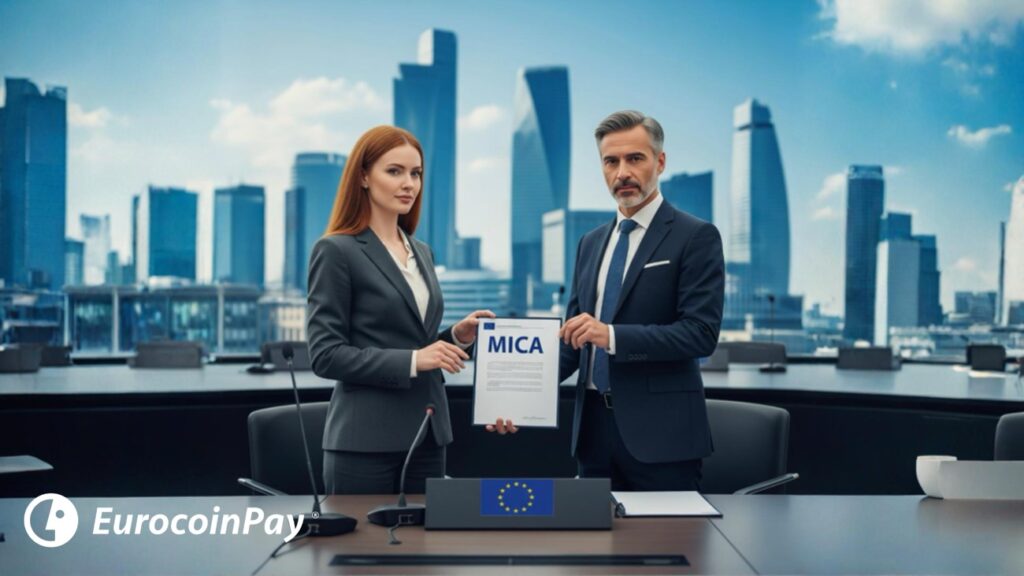A guide to understanding cryptocurrency regulation
Cryptocurrencies are becoming increasingly prevalent around the world, but their regulation is a complex patchwork. Some countries embrace innovation, while others erect barriers. What does this mean for you, for businesses, and for the future of digital money?
At EurocoinPay, we believe that understanding this scenario is key to using cryptocurrencies safely and confidently. That’s why today we’re telling you how the crypto world is being regulated in different corners of the globe.

Europe: MiCA at the forefront
The European Union has taken a firm step forward with the approval of the MiCA (Markets in Crypto-Assets) regulation. The aim is to protect users, increase transparency and establish clear rules for crypto service providers.
This translates into greater security for all of us who use and develop blockchain technology in Europe. In Spain, this framework will be fundamental in consolidating companies such as EurocoinPay in the financial ecosystem of the future.
United States: Big steps, but no clear roadmap
In the US, the situation is more complex. The authorities have yet to reach a consensus on who should regulate cryptocurrencies. The SEC and CFTC have been debating for years whether crypto assets are securities, commodities… or something completely new?
This lack of clarity has created uncertainty for many companies in the sector, but it has also prompted discussion about a specific federal law that would provide greater definition.
Singapore: A regulated environment for innovation
This small Asian country has become one of the most dynamic crypto hubs in the world. In Singapore, companies must meet strict requirements to prevent money laundering, but in return they find a favourable environment for innovation and growth in the blockchain sector.
El Salvador: Bitcoin as official currency
In 2021, El Salvador surprised the world by becoming the first country to declare Bitcoin legal tender. This allows citizens to use BTC in their daily lives, from paying for a coffee to sending remittances.
Although the measure has generated mixed opinions, it has put El Salvador on the map of the financial revolution.
China: Crypto ban and rise of the digital yuan
China, for its part, has completely banned decentralised cryptocurrencies, arguing that they pose risks to financial stability. In return, it is promoting its own state-controlled digital currency: the digital yuan.
This model demonstrates the interest of governments in maintaining control over the monetary system, even as they explore new technologies.
Where are we headed?
Although there is still no unified global regulation, it is clear that the world is moving towards a scenario where cryptocurrencies will be increasingly regulated. Some international bodies, such as the FATF (international SEPBLAC), are already working on common recommendations on security and fraud prevention.
At EurocoinPay,we believe that good regulation is not a hindrance, but an opportunity to grow with guarantees, protect users and build trust in this new digital economy.
Our vision
Since our inception, at EurocoinPay we have been committed to working within the legal framework in Spain and Europe. We are a company registered with the Bank of Spain and we comply with all current regulations to offer you a secure, fast and transparent crypto experience.
We closely follow the evolution of global regulation because we are convinced that the future of money will be digital, decentralised… and well regulated.
What do you think about the future of cryptocurrency regulation? We would love to hear your perspective!
Disclaimer: The information set forth herein should not be taken as financial advice or investment recommendation. All investments and trading involve risk and it is the responsibility of each individual to do his or her due diligence before making a decision.




